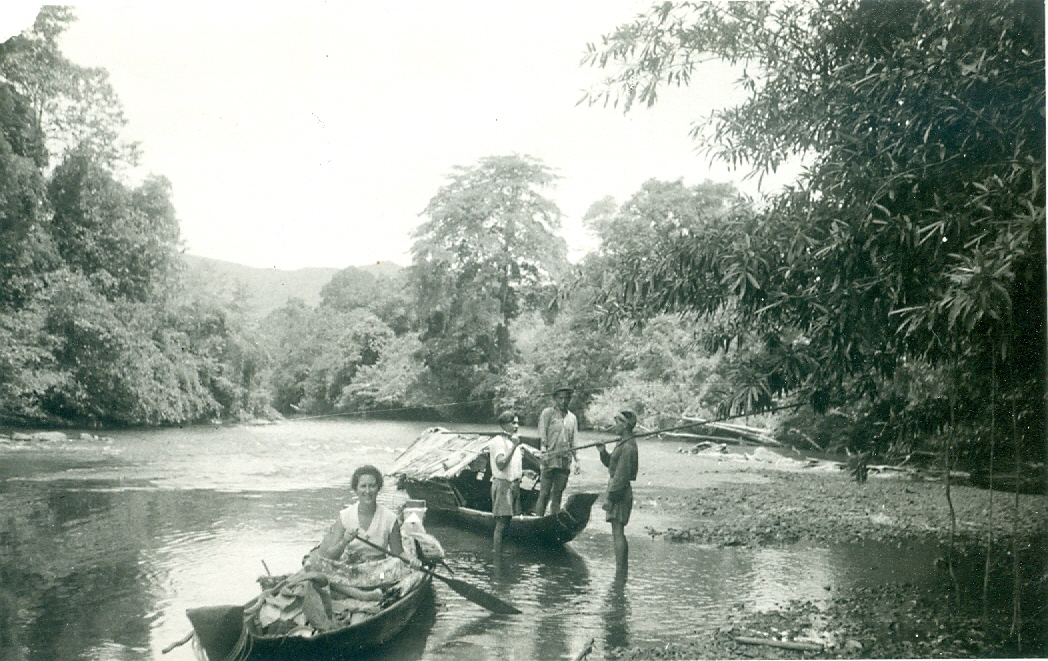We use cookies to make your experience better. To comply with the new e-Privacy directive, we need to ask for your consent to set the cookies. Learn more.
Work that we're called to do
Barbara Fox chats with us about the genesis of her new book Midwife of Borneo, in which she tells the story of the life and work of Wendy Grey Rogerson.
I have known Wendy all my life, as she and her husband, Colin, an Anglican priest, are friends of my parents. Dad and Colin played tennis together in the early 1960s, when my parents were newly married and Colin was still a bachelor. All three of them had heard of Wendy Grey, the young nurse working in Borneo, for she was on the prayer list at my parents' church, and Colin was curate at the church Wendy had attended in Newcastle, though had arrived after her departure.
As a nurse herself, with experience of tropical diseases, my mother remembers worrying about Wendy when, one Sunday in 1962, her name was no longer on the list. Thankfully, there was a straightforward explanation – she had returned home after three years. And in no time at all, she and Colin had been introduced and were engaged to be married!
Last summer, Wendy – who had read some of my other books – asked me if I could help her to publish the diaries she wrote during those years. I must confess that I turned the project down at first, knowing only that she had lived on an Anglican mission in what was then a British colony, and thinking that the subject matter might not be palatable to today's more enlightened readership! But Wendy was persistent, and when I took time to read the material she sent me, I saw that the account of her daily struggles and joys as she single-handedly ran a clinic in conditions that would have defeated most people, was a human-interest story as compelling as any other.
I learnt how she left her comfortable life in Newcastle – where she had a good job as a health visitor – to sail to the other side of the world and tend to people who had probably never seen a white person, let alone a doctor or nurse. How her home in the remote interior, far away from the comforts of modern life, was a hut made of bamboo, bark and palm leaves.
I was astounded when I read that, in emergencies, she sometimes had to operate on her patients, becoming anaesthetist and surgeon. Or, when the urgency was less great, she accompanied them in a dugout canoe to hospital in Sandakan – a journey that took five days. That in itself was fraught with danger, whether from floods or rapids, crashing into log rafts from the timber camps, or getting lost in the labyrinthine channels close to the river estuary.
And I read how she regularly set off with the mission leader, on foot and on water, to provide clinics in even further-flung places. On these journeys she slept out in the open, hoping the animals whose cries she heard would leave her alone.
I had to apologise to Wendy for my hasty decision – a lesson, perhaps, in not judging a book (or diary!) by its cover.
Wendy had to make the most of daylight hours (a more or less constant 12 hours all year round) for her clinic work. And when the clinic was closed, there was always something to do – paperwork, mending rat-eaten clothing, preparing meals on a tiny cooker, writing letters. This correspondence was very important, for her friends and supporters back home, hearing of her difficulties, provided funds for better medicines, a fridge for the clinic, and an outboard motor to shorten the journey time to Sandakan.
There were greater surprises along the way: I had not expected to come across a romance in the diaries! Wendy, too, had forgotten a lot of things, and more than once questioned something I had lifted straight from the pages! Perhaps she is only realising now quite how extraordinary her achievements were.















